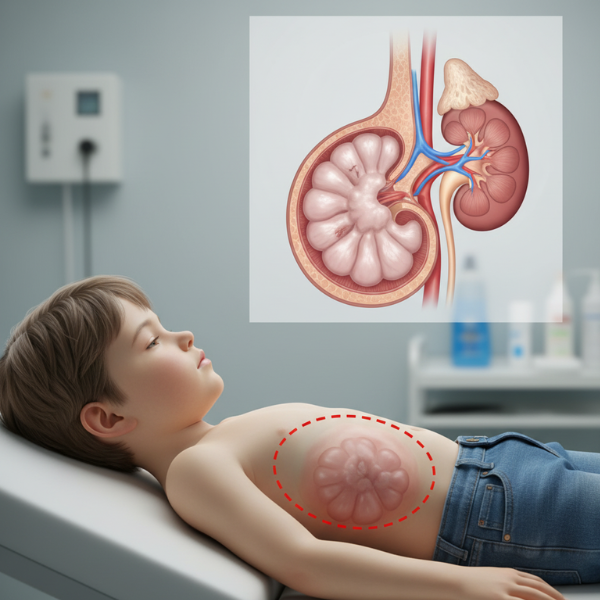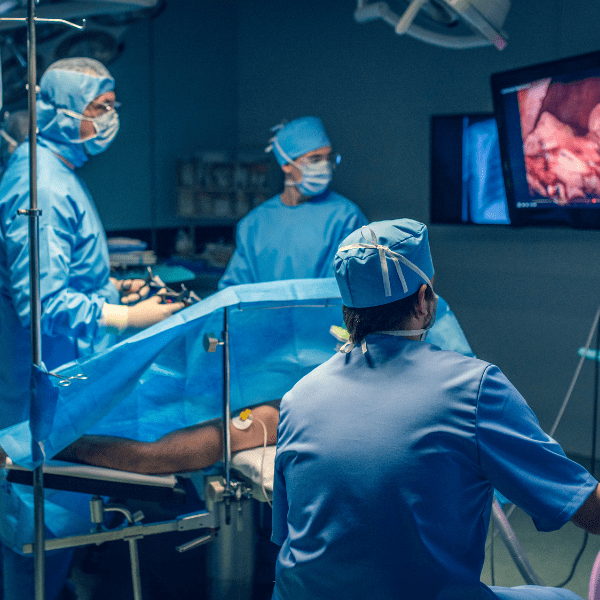Cancer
Professional cancer care for patients from abroad. Get Well Go offers thorough care and supportive services. Our top priority is your wellness. Cancer
Departments
Cancer Treatment in India
India has come up as the top destination for cancer treatment with many patients coming from different parts of the world. The country has well equipped health facilities and specialities, professional health care providers and relatively cheaper than other developed nations.
Advanced Treatment Modalities
India offers a wide range of cutting-edge cancer treatments, including:
Surgical Oncology: Laparoscopic and robot assisted procedures for instance are utilized to remove tumors while causing minimal harm to the body and achieving fast recoveries.
Radiation Therapy: Intensity-Modulated Radiation Therapy (IMRT), Stereotactic Body Radiotherapy (SBRT), and Proton Therapy are the types of Cancer Treatment Technologies that help give targeted radiation therapy with less harm to healthy tissues.
Chemotherapy: Customized regimens are highly individualistic and are mainly predisposed to particular forms of cancer as part of other treatments.
Immunotherapy and Targeted Therapy: New therapies either boost the patient’s immune system or act on cancer cells only, or therefore, hold promise for those who have not responded to conventional treatments.
Bone Marrow Transplantation: India has an excellent success rate in allogeneic and autologous stem cell transplant for leukemia, lymphoma and other blood diseases.
Integrative Medicine: Most of the centers use treatment from ancient civilizations such as Ayurveda and Yoga alongside nutritional management.
Treatment for Cancer in India for International Patients
Cancer treatments that many international patients look up to, often including, Bone Marrow Transplantation, Breast Cancer, Prostate Cancer, Cervical Cancer, and Ovarian Cancer commonly because of the medical science advancement, latest technologies, and affordable treatment costs in India. India has an extremely high success rate for Autologous Bone Marrow Transplants as well as Allogeneic Bone Marrow Transplants for people suffering from leukemia or lymphoma. Available treatment in the case of breast cancer in India uses novel procedures such as robotic surgeries as well as precise treatment methods such as targeted therapy. Features such as robotic surgery and advanced radiotherapy are used for the treatment of prostate cancer. Like breast, cervical and ovarian cancers are also in high demand for accurate treatment modalities such as brachytherapy, chemotherapy and surgeries which preserves fertility. A number of concierge services to facilitate the international patients including visa support, interpreters, and inexpensive accommodation make India a more advisable country for such a vital cancer treatment. The global clients from Middle East, Africa, South East Asia, and Western countries tend to visit India for cancer treatment because the success rates are higher and the doctors and clinical staff are increasingly client-focused.
Types of Bone Marrow Transplants Offered in India
Autologous Transplant
- It involves the use of stem cells from the patient’s body.
- It is employed for treating malignancies such as multiple myeloma and selected types of lymphomas.
Allogeneic Transplant
- Obtained from a donor, mostly a related one, but sometimes the source could be an unrelated person.
- Proven in leukemia, aplastic anemia, and certain inherited diseases of blood.
Haploidentical Transplant
- Uses a half matched relative as a donor.
- Allows for using multiple donors especially where there is no compatible one in the patient family.
Cord Blood Transplant
- Utilises cells sourced form umbilical cord blood.
- Effective when used in kid related issues.
Conditions Treated with Bone Marrow Transplants in India
- Leukemia
- Lymphoma
- Multiple Myeloma
- Aplastic Anemia
- Sickle Cell Anemia
- Thalassemia
- Myelodysplastic Syndrome
- Immunodeficiency Disorders
Breast Cancer Treatment Options in India
India offers comprehensive care for all stages of breast cancer, including early detection, advanced diagnostics, and multi-modal treatments:
Surgical Treatments
- Lumpectomy (Breast-Conserving Surgery): Surgical method in which most of the breast tissue is preserved and only the tumor is excised.
- Mastectomy: Surgery that involves the total removal of the breast, but reconstruction of the breast may be done.
- Oncoplastic Surgery: Procedure that incorporates procedure of carrying out cancer resection with breast reconstruction as part of cosmetic surgery.
- Sentinel Lymph Node Biopsy (SLNB): Hormone sensitive invasive procedure for cancer metastasis detection.
Radiation Therapy
- External Beam Radiation Therapy (EBRT): High selectivity of the cancer cells.
- 3D Conformal Radiation Therapy (3D-CRT) and Intensity-Modulated Radiation Therapy (IMRT): In some cases, surgeons try to harm as little unhealthy tissue as possible while leaving healthy tissues intact.
- Brachytherapy: Brachytherapy is a method of internal radiation therapy for curative purposes in localized tumors.
Systemic Therapies
- Chemotherapy: Given as adjuvant therapy to reduce cancer-sized growths or eradicate remaining malignant cells after surgery.
- Targeted Therapy: Comprise of targeting drugs HER2 such as trastuzumab, Herceptin).
- Hormone Therapy: For hormone receptor positive ones such as tamoxifen or aromatase inhibitors.
- Immunotherapy: Raises the defensive barriers to fight against cancer cells.
Advanced Techniques
- Robotic-Assisted Surgery: Tissues can be preserved accurately and with minimal amount of scars.
- Cryoablation: In early-stage cases it halts and kills cancer cells.
Prostate Cancer Treatment Options in India
India provides comprehensive treatment for all stages of prostate cancer, from early detection to advanced care, including:
Surgical Treatments
- Radical Prostatectomy: Surgical excision of the entire prostate organ; offered in a number of forms:
- Open Surgery: Conventional treatment technique used when the other forms of treatment have failed or when the tumour is complicated.
- Laparoscopic Surgery: Which is less invasive, meaning shorter time needed to recover fully.
- Robotic-Assisted Surgery (Da Vinci System): It offers high precision and the beneficiary will not need a lot of blood and they are discharged from the hospital faster.
- TURP (Transurethral Resection of the Prostate): Quite frequently employed as an adjunct to treat the symptoms in the terminal stages of disease.
Radiation Therapy
- External Beam Radiation Therapy (EBRT): Concentrates on cancer cells without much destruction to the healthy cells.
- Intensity-Modulated Radiation Therapy (IMRT): Less likely to have side effects and more likely to be effective when specifically administered.
- Stereotactic Body Radiotherapy (SBRT): Achieves large doses within fewer frequency and duration of treatments.
- Brachytherapy: Cancers such as prostate cancer are treated through the implantation of radioactive seeds into the affected organ.
- Hormone Therapy: Reduces testosterone production to control cancer progression; can be administered with other treatments.
- Chemotherapy: Used for short and long-term management of hormone-refractory metastatic prostate cancer when other therapies cannot effectively treat the disease.
- Immunotherapy: Preventing the cancer cells from growing, for eg sipuleucel-T that boosts immune response to fight cancer.
- Targeted Therapy: Covers biomolecular changes in cancer cells, providing an individual approach.
Focal Therapies
- Cryotherapy: Freezes cells tumor by making the use of low temperature.
- High-Intensity Focused Ultrasound (HIFU): Kills malignant cells by generating ultrasound.
Cervical Cancer Treatment Options in India
India provides a range of advanced treatments for cervical cancer, customized to the stage of the disease and the patient's overall health:
Surgical Treatments
Radical Hysterectomy
- The surgical operation that entails the total elimination of all or part of the uterus, the cervix, and even the vaginal canal.
- It is used mostly in stage I and II cervical cancer.
Trachelectomy: Saves the uterus; better for women who are still hoping to have children in the future, ER adjuvant therapy for stages I and II of cancer.
Pelvic Exenteration: Surgically resected samples and their association with recurrent cervical cancer.
Radiation Therapy
- External beam radiotherapy: Use of high energy waves in order to focus on the tumor.
- Brachytherapy: Involves placing radioactive materials within tumor mass or near the point of the disease affecting the organs.
- IGRT and IMRT are two specific means through which the delivery of radiation treatment is made more personalized.
- Sophisticated approaches for the treatments with less adverse effects.
Chemotherapy
- Used frequently with radiation therapy (chemoradiation) to increase its effectiveness.
- Prescribed in the later periods or for cases that cannot undergo operations.
Targeted Therapy
- There are drugs like bevacizumab (Avastin) that act through inhibition of some means that the cancer cells utilize to develop.
Immunotherapy
- Strengthen up the body’s immune system to be able to combat cancer.
- In particular, it is helpful in the case of progressive or recurrent cervical neoplasia.
Advanced Techniques
- Laparoscopy and Robotic-assisted surgery; or, Minimally Invasive surgery
- Provides a higher degree of accuracy with a lesser amount of time for recovery and a lower incidence of complications.
Ovarian Cancer Treatment Options in India
Ovarian cancer treatment in India consists of surgery together with chemotherapy and may also include radiation or targeted therapies. The choice of treatment entails factors such as stage of ovarian cancer, patient’s general health and type of ovarian cancer.
Surgical Treatments
- Oophorectomy: Surgical operation in which one or both ovaries are taken or in which a tumor, cyst, or abscess is removed; can be used to treat early-stage ovarian cancer.
- Total Hysterectomy: Surgical operation to cut out the whole abdomen including the uterus, ovaries, and fallopian tubes, often encouraged for stage 3 and 4 ovarian cancer.
- Debulking Surgery: Often in locally advanced cancer, the surgeons may perform seedings to reduce the tumor bulk so that other treatments can be made more effective.
Chemotherapy
- Intraperitoneal Chemotherapy: Intraperitoneal chemotherapy is to achieve higher concentration of drugs within the abdominal cavity.
- Neoadjuvant Chemotherapy: It is administered prior to surgery because it causes reduction in tumour size.
- Adjuvant Chemotherapy: Given after the operation to eliminate the cancer cells which are not removed by surgical operation and hence there are less chances of cancer to return back.
Targeted Therapy
- Bevacizumab (Avastin): A specific agent that blocks angiogenesis of the tumours.
- PARP Inhibitors: In patients with BRCA1 or BRCA2 gene mutations, these drugs inhibit cancer cells from repairing damaged DNA, stopping the cancer cells to form.
Radiation Therapy
- As a less frequent approach for ovarian cancer management radiation can be used with advanced disease or recurrent cancers in the area with specific tumor location.
Hormone Therapy
- Sometimes, when the ovarian cancer is hormone receptor-positive, hormone therapy will involve drugs that may reduce estrogen manufacture or impact on the tumour.
Minimally invasive and robotic surgical procedure
- Laparoscopic Surgery: The surgical procedure that employs miniature cuts since it takes a short time to heal and leaves minimal marks behind.
- Robotic-Assisted Surgery: Morbidity higher in comparison to sharp instruments and provides better accuracy and early recovery in cases such as debulking.
Why International Patients Choose India for Cancer Treatment?
India enjoys high popularity in the sphere of medical tourism due to several reasons, which force cancer patients from all over the world to come to the country for treatment. Here are the key factors:
- World-Class Hospitals
- Skilled Oncologists and Surgeons
- Affordable Treatment
- Advanced Treatment Options
- Minimal Wait Times
- Comprehensive Patient Care
- Language Support
- Visa Assistance
- Travel and Accommodation Arrangements
Top 5 Hospitals for Cancer Treatment
BLK-Max Super Speciality Hospital, New Delhi
- Jawahar Lal Nehru inaugurated BLK super speciality hospital, a private hospital. The hospital, which is one of the top ten cancer hospitals in Delhi, has performed numerous bone marrow transplant surgeries.
- Cutting-edge technologies for diagnosis and therapy, including PET scans, IMRT as well as a linear accelerator
- Oncology, hormonal therapy, and personalised therapy are all provided by the institution to its patients by a qualified and experienced team of the best oncologist in Delhi.
The Apollo is a well-known and well regarded cancer hospital in Delhi. It provides its patients with a variety of medical services, a few of them are mentioned below:
- Cytology, haematology, hyperbaric oxygen therapy, and histopathology
- Provides patients with psychotherapy services to assist them in better comprehending cancer therapy and its ill consequences
Fortis Memorial Research Institute, Gurgaon
- The Fortis Memorial Research Institute is a super-speciality hospital that is part of the Fortis Healthcare Limited group. It has its cancer clinic, which aids in the treatment of numerous cancer sufferers each year.
- The most up-to-date equipment is available for operation, radiation therapy, and medical treatment.
- Separate facility for paediatric oncology
- Provisions for stem cell therapy and bone marrow transplantation
Max Hospital provides excellent care with the help of professional medical staff and cutting-edge technology. They provide several services, including:
- 24 hours a day, 7 days a week, medication, and diagnostic services are available
- In the oncology department, there are 12 chemotherapy chairs and three patient beds
- 3D vision and a high-speed rotating arm are part of the latest robotic surgery technologies
- Institute accredited by JCI (Joint Commission International) accreditation
Artemis Hospital in Gurgaon has quickly risen to be among the leading hospitals in the Delhi/NCR region. They provide the following services:
- Staff that are very well and knowledgeable, as well as a bone marrow transplant centre that is well-equipped
- Cancer patients have access to advanced pathology services
Top 5 Oncologists
Dr. Vikas Dua
- Dr. Vikas Dua is a Paediatric Hemato Oncologist and Bone Marrow Transplant specialist of the generation. He is currently working as Principal Director & Paediatric Haematology at Fortis Hospital, Noida. Dr. Dua’s results in the field of Paediatric Hematology Oncology and BMT have been one of the best. He and his team have done 1000+ transplants. He is known for his excellent outcome in Stem Cell Transplant especially in Paediatric Unrelated & Haploidentical Transplant and he has done some of the very rare transplants which nobody else has done in India. Speciality Interest Benign Paediatric Hematology, Hemato-Oncology Matched sibling and unrelated and Paediatric Haploidentical Transplants
- Address: B-22, Rasoolpur Nawada, D Block, Sector 62, Noida, Uttar Pradesh 201301
Dr. Ashok Kumar Vaid
- Dr. Ashok K. Vaid, is a distinguished and certified Medical Oncologist who has had the unique distinction of starting one of the largest Stem Cell Transplant programs in the private sector in north India. Dr Vaid currently serves as Chairman, Medical Oncology and Hematology and Stem Cell Transplant at the Medanta Cancer Institute, Gurugram, India. He brings over 30 years of clinical expertise with special interest in Cancer Genomics, Immunotherapy Guidance and Precision Onco-therapeutics, in addition to Dendritic Cell Therapy, and Stem Cell Transplant.
- Address: Medanta-The Medicity, CH Baktawar Singh Rd, Medicity, Islampur Colony, Sector 38, Gurugram, Haryana 122001
Dr. Rahul Bhargava
- Dr Rahul Bhargava started his journey of Stem Cell Transplant from Medanta in the year 2010. He has completed over 1500+ transplants till date. He is currently working as Principal Director & Chief- Haematology, Haemato Oncology & BMT at Fortis Memorial Research Institute, Gurgaon.
- Address: Sector 44, Opposite HUDA City Centre, Gurugram, Haryana 122002
Dr Harit Chaturvedi
- Dr Harit K Chaturvedi is the Chairperson of Max Institute of Cancer Care. He joined Max Healthcare in 2009 and has passionately built one of the largest and finest oncology programs in the country.
- Address: Max Super Speciality Hospital, No. 1, 2, Press Enclave Road, Mandir Marg, Saket Institutional Area, Saket, New Delhi, Delhi, 110017, India
Dr Mukesh Patekar
- Dr Mukesh Patekar is a renowned medical and hemato oncologist trained from All India institute of medical sciences (AIIMS), New Delhi with 15 years of vast experience. He is trained in all aspects of medical oncology, hemato-oncology, paediatric oncology, stem cell transplantation, Precision therapy as well as Pain and Palliative medicine. He is currently working at Artemis Hospital, Gurgaon.
- Address: Sector 51, Gurugram, Bindapur, Haryana, 122001
Why Choose GetWellGo for Cancer Treatment in India?
GetWellGo is a reliable medical travel agent for patients from other countries who are in need of quality, and affordable cancer care in India. Here’s why you should consider GetWellGo for your cancer treatment journey:
- Access to Top Cancer Treatment Hospitals
- Cutting-Edge Technology
- Expert Oncologists and Medical Professionals
- Cost-Effective Treatment
- 24/7 Assistance
- Language and Translation Services
- Visa, Travel, and Accommodation Arrangements
For Consultation
To book an appointment you can reach us through below mentioned details:
- Email address: care@getwellgo.com.
- Phone number: +91-9289678787.












.png)





